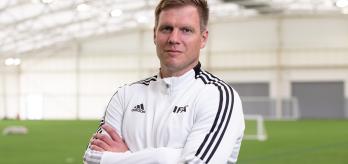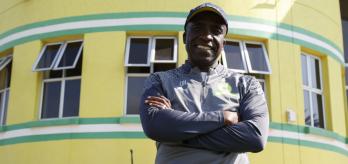For every 15,000 boys in Norway’s youth pyramid, just one will go on to represent the senior national side. However, in a single FIFA World Cup™ qualifier in 2021, no fewer than four of the country’s starting 11 were the sons of former internationals. A similar pattern can also be seen elsewhere, with players like Daniel Maldini, Kasper Schmeichel and the Thuram brothers all following in the footsteps of illustrious footballing fathers. A coincidence? Not necessarily…
Key take-aways
-
All parents, whether they have a football background or not, have a huge influence on their children’s development, both on and off the pitch. There is no substitute for good parenting.
-
Former professional footballers can give their children important insights into what it takes to play the game at an elite level, and their contacts can open doors that might remain closed to other youngsters.
-
While being the child of a professional athlete can provide an advantage, good clubs and coaches might be able to level the playing field by creating opportunities for all young talent, irrespective of background.
Watch brief
Read summary
Part 1: Background and methodology
To reach the top of the professional game, young footballers have to develop a combination of technical ability and mental strength. Parents can play a key role in this process by facilitating practice, shaping their children’s attitude to football, serving as role models and creating a happy home environment. For this study, the researchers interviewed the Bergs (Ørjan and Patrick), the Sørloths (Gøran and Alexander) and the Thorstvedts (Erik and Kristian), all of whom are current or former Norwegian internationals, to investigate how the ex-pros supported their sons’ development as players and, most importantly, as people.
Part 2: Key findings
From the interviews, the researchers identified four main ways in which the fathers supported their sons: inspiring them through their own careers; being active training partners and, in some cases, coaches; using their contacts and reputations to open doors; and providing practical help, emotional backing, and expert advice. This included everything from playful but purposeful football activities in childhood to facilitating training camps, finding pitches, and helping with career decisions. The fathers often balanced high expectations with a relaxed approach, letting their sons take the lead in deciding how seriously they wanted to take their football.
Part 3: Implications
The interviews show that many of the fathers’ positive behaviours, such as showing interest, playing together and offering support, are possible for any parent or guardian. Former professionals can also provide unique advantages, including inspiration from their career, informed advice and easier access to elite environments. Clubs and federations can help narrow the gap by offering similar opportunities, high-quality coaching and access to role models. Above all, a supportive home environment that values enjoyment and well-being remains key to helping children thrive in football, or indeed any other field.
Paper citation and link
Erikstad, M.K., Johansen, B.T., Knight, C.J. & Haugen, T. 2025, “Like Father, like Son: A Qualitative Study of Father-Son Dyads at the Senior National Football Team Level”, Journal of Expertise, vol. 8, no. 2–3, pp. 179-199.











